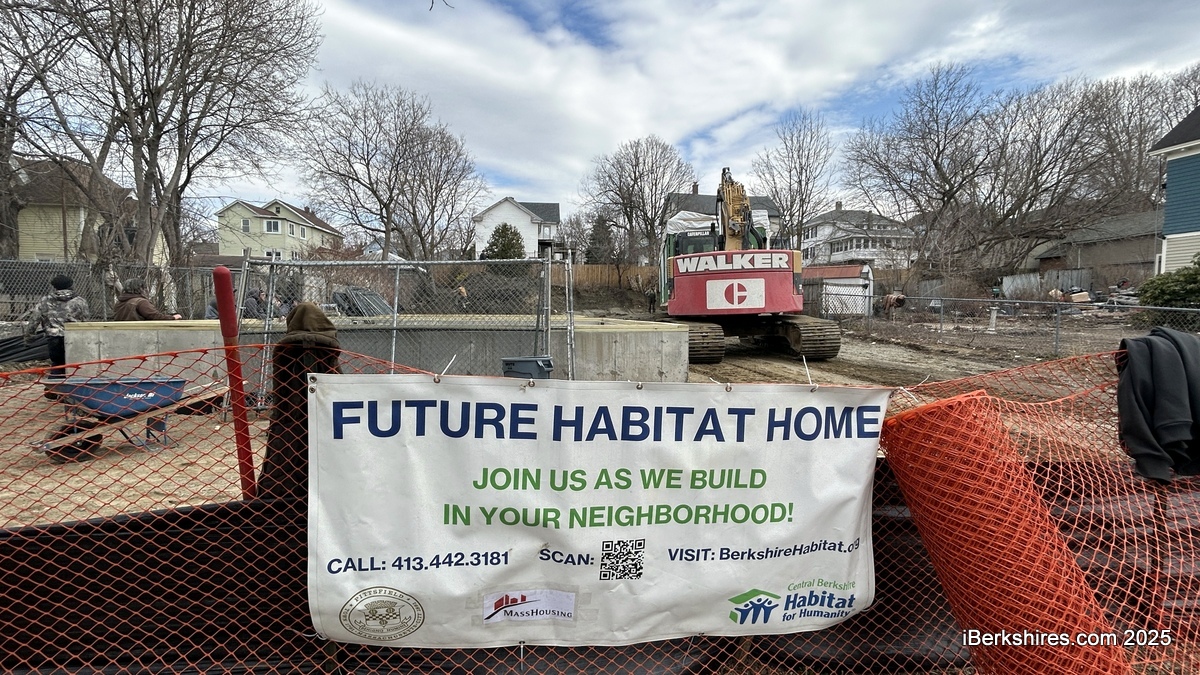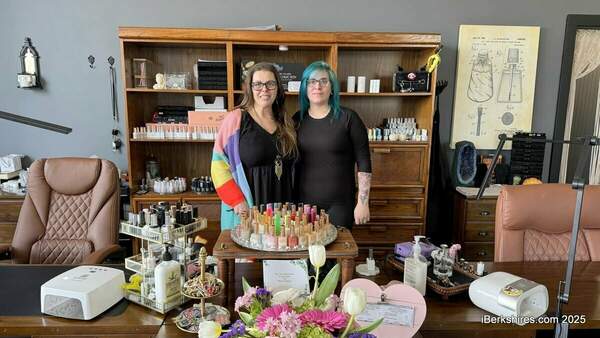
Architect Poses New Ideas for Pittsfield Preservation
 Tessa Kelly's visions for Pittsfield are on display at the Lichtenstein Center for the Arts. |
In an new exhibit now on display at the Lichtenstein Center for the Arts, Kelly blurs the lines between art, architecture, and serious suggestions for new ways at looking at preservation in the context of further urban revitalization locally.
In "Re-Imagining Pittfield's History and Heritage," on display through June 30, she poses the idea that local history can be constructively preserved not only in maintaining buildings from the past, but also by incorporating inspirations from what she calls "layers" of local history in new or significantly re-adapted structures.
"Rather than focus on freezing things in a past state, I wanted to think about ways to create new experiences within a city that would enrich a sense of place there," says Kelly, who said she spent about a year on the research behind the exhibit.
This concept, which she calls "projective preservation," was the subject of her thesis at Harvard Graduate School of Design, from which she just graduated, after receiving a bachelor's degree in architecture from Williams College in 2007. She previously attended Mount Greylock Regional High School.
"For me, to 'preserve' does not mean to prevent something from change, it means to keep something active and evolving," according to Kelly. "The first step of the project is to identify these networks of sites throughout the city. The second step is to 'preserve' each history by designing spaces that mark each site."
Kelly said that while there were many possible layers of history by which one could look at Pittsfield, she selected four key threads for consideration in her study. Focusing attention on the Housatonic River as an anchoring geographic feature, her research honed in four groups that all interacted with the river in different ways: the Mohican natives who occupied this area in pre-colonial times, the mill industries, local writers of the 19th century, and the General Electric era.
The designs she offers to illustrate her concepts include a dispersed school that travels via the river and waterways between the sites of former Mohican settlement, a portable writer's retreat in a model of Herman Melville's writing study, a one-kilometer cut in the earth at the former GE sites, and a plan for transforming mill smokestacks into viewing towers that chronologically frame the sites of other mills throughout the city. This last proved especially popular with a crowd of about 20 which gathered for a brief artist talk and Q&A on Friday.
 Old smokestacks become observation towers in Kelly's reimagining of Pittsfield. |
Kelly said this exhibit was the first real preview of the work she's undertaken, but would welcome opportunities to discuss these preservations principles with city authorities in the future. Whether or not any of the hypothetical structures she's designed are actually implemented, the budding architects hopes that her project might enrich planning perspectives.
"I think it would be exciting just to start to think about preservation in this way, and maybe use some kind of method like this as a way to think about community development going forward."
"ReImagining Pittsfield's History & Heritage" will be on display through Saturday, June 30, at the Lichtenstein's gallery at 28 Renne Ave. The Lichtenstein Center for the Arts is open free to the public Wednesday through Saturday noon to 5.
Tags: architecture , community preservation,
















